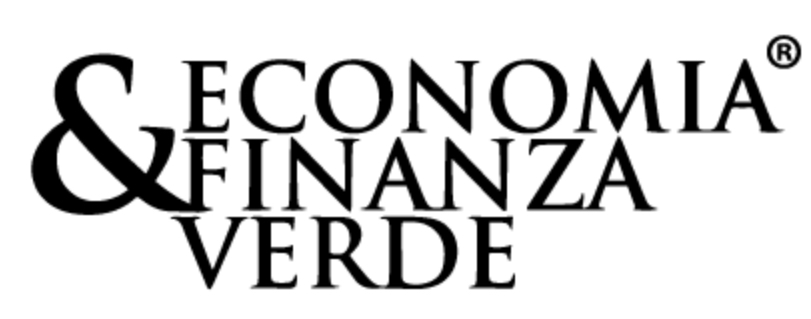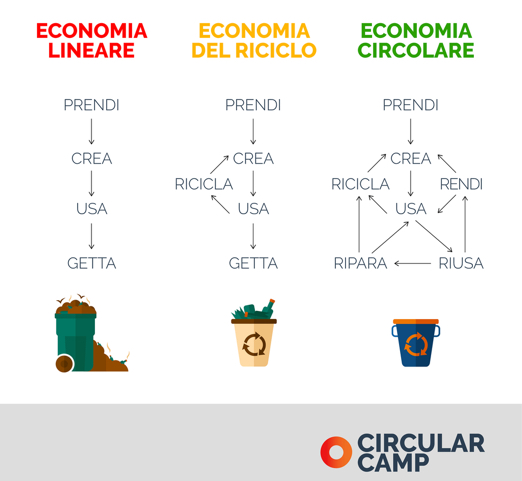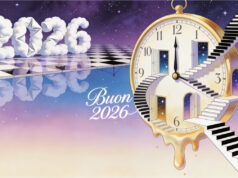Il valore dei lavori scientifici non è soltanto quello di promuovere una visione innovativa dell’oggetto della ricerca, ma anche quello di presentare il contesto nel quale si colloca l’indagine. Ciò anche al fine di eliminare approssimazioni terminologiche che le vulgate tendono a diffondere. Ripristinare certezze definitorie non è questione di pedanteria, ma di precisione di analisi.
Ci sono termini che vanno quasi alla deriva nel mare dei luoghi comuni, sballottati da un uso che li allontana dal loro vero significato, divenendo quasi mode linguistiche. Un esempio di termini che hanno invaso la nostra quotidianità: sostenibilità, resilienza, ecosistema, ambientalismo. Anche alla locuzione di Economia circolare sembra riservato lo stesso destino, se non viene alzata una qualche barriera a difesa del significato. Questo non vuol dire che vi sia unicità nell’accezione del termine, ma che la tensione definitoria sia essa stessa la dimostrazione degli sforzi sostenuti nel promuovere questa essenziale innovazione. In un bel libro, appena uscito, dal titolo Crowdfunding for Environmental Sustainability and the Circular Economy-Empowered Strategies for Sustainable Growth di F. Corsini e M.Frey della Scuola Superiore Sant’Anna di Pisa, troviamo questa rassegna.
Definizioni di Economia Circolare
“A circular economy is an industrial system that
is restorative or regenerative by intention and
design. It replaces the end-of-life concept with
restoration, shifts towards the use of renewable
energy, eliminates the use of toxic chemicals,
which impair reuse and return to the biosphere,
and aims for the elimination of waste through
the superior design of materials, products,
systems and business models. Such an economy
is based on a few simple principles. First, at its
core, a circular economy aims to design out
waste. Waste does not exist: products are
designed and optimized for a cycle of
disassembly and reuse. These tight component
and product cycles define the circular economy
and set it apart from disposal and even recycling,
where large amounts of embedded energy and
labour are lost. Second, circularity introduces a
strict differentiation between consumable and
durable components of a product.”
Ellen MacArthur Foundation (2013).
“A circular economy is a system which maintains
the value of products, materials and resources in
the economy for as long as possible, and
minimises the generation of waste. This means a
system where products are reused, repaired,
remanufactured or recycled.”
European Commission (2015).
“Circular economy mainly emerges in the
literature through three main actions, i.e. the so
called 3R’s Principles: Reduction, Reuse and
Recycle”
Ghisellini et al. (2016).
The circular economy is “an industrial system
that is restorative or regenerative by intention
and design. It replaces the ‘end-of-life’ concept
with restoration, shifts towards the use of
renewable energy, eliminates the use of toxic
chemicals, which impair reuse, and aims for the
elimination of waste through the superior design
of materials, products, systems, and, within this,
business models.”
Geissdoerfer et al. (2017).
“The concept of circular economy conceives of a
production and consumption system with
minimal losses of materials and energy through
extensive reuse, recycling, and recovery.”
Haupt et al. (2017).
The circular economy is “an economic system
that replaces the ‘end-of-life’ concept with
reducing, alternatively reusing, recycling and
recovering materials in production/distribution
and consumption processes. It operates at the
micro level (products, companies, consumers),
meso level (eco-industrial parks) and macro level
(city, region, nation and beyond), with the aim
to accomplish sustainable development, thus
simultaneously creating environmental quality,
economic prosperity and social equity, to the
benefit of current and future generations. It is
enabled by novel business models and
responsible consumers. We hope that this CE
definition can be a contribution to the scholarly
CE community with this definition ideally
serving as a conceptual foundation for future
work on the topic.”
Kirchherr et al. (2017).
“Circular economy is an economy constructed
from societal production-consumption systems
that maximise the service produced from the
linear nature-society-nature material and energy
throughput flow.”
Korhonen et al. (2018).
“The circular economy is a regenerative
production-consumption system that aims to
maintain extraction rates of resources and
generation rates of wastes and emissions under
suitable values for planetary boundaries, by
closing the system, reducing its size, and
maintaining the resource’s value as long as
possible within the system, mainly leaning on
design and education, and with capacity to be
implemented at any scale”
Suarez-Eiroa et al. (2019).
“Circular Economy (CE) is an activity, set of
process for reducing the material used in
production and consumption, promoting
material resilience, closing loops and exchange
sustainability offering in such a way that
maximize the ecological system.”
Awan et al. (2020)-
Come si può vedere le differenze di interpretazioni non mancano, come la diversità di enfasi posta su vari caratteri della Economia Circolare, a testimonianza che un lavoro di identificazione deve essere ancora portato a compimento. Quello che si vuol evidenziare è che in ogni caso il tema è tutt’altro che questione per soli addetti, ma contesto di riferimento per tutti coloro che saranno impegnati su questo fronte. E non si parla di qualche nicchia o segmento produttivo, ma dell’intera attività economica e dell’economia civile di tutti i Paesi.
Quindi praticamente di tutto il genere umano!





